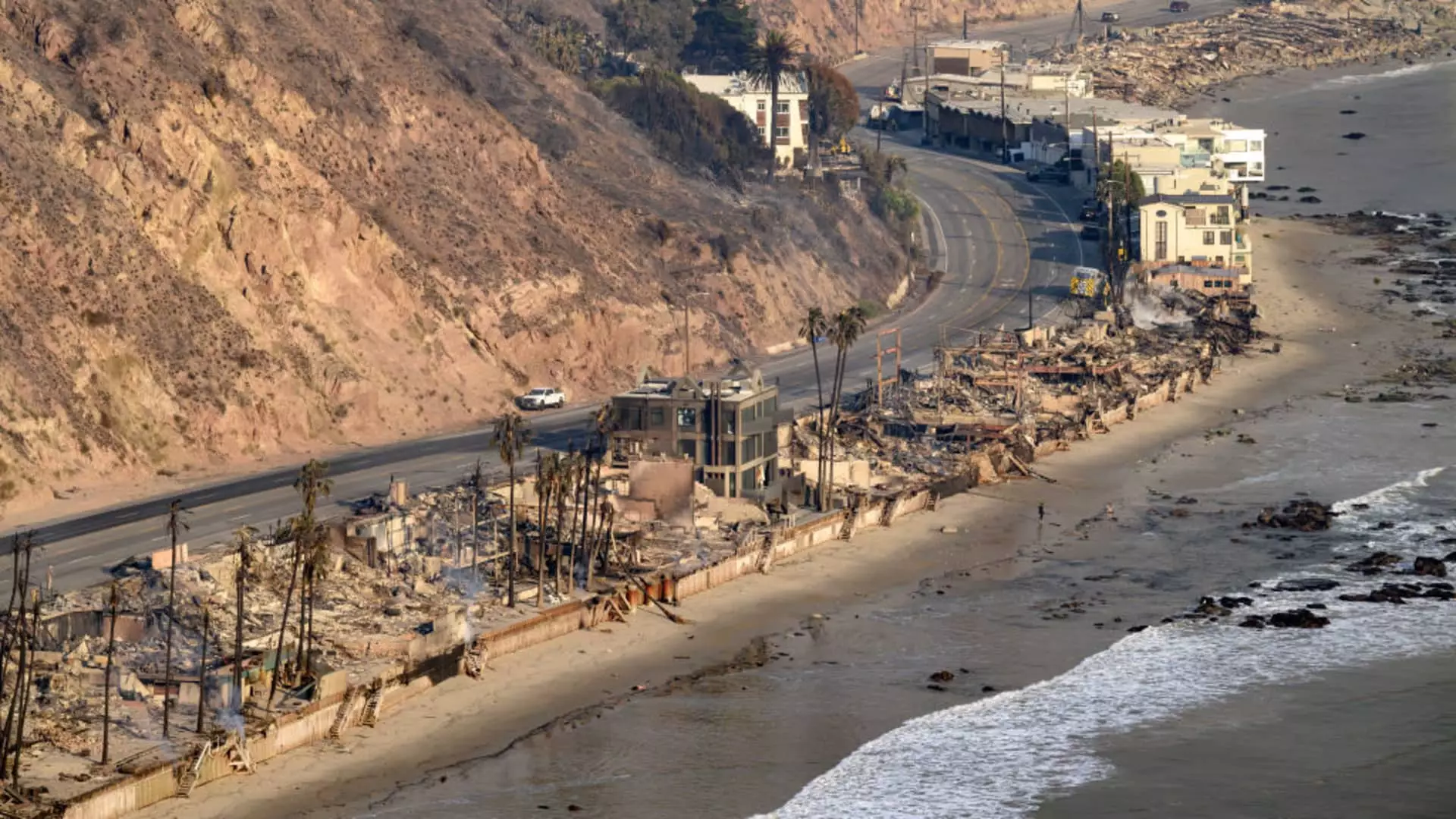In light of the ongoing wildfires plaguing the Los Angeles region, airlines have proactively implemented travel waivers to ease passenger concerns and operational challenges. Major carriers, including American Airlines, United Airlines, Southwest Airlines, and JetBlue Airways, are allowing travelers to make changes to their travel plans without incurring fees. This decision comes as the area grapples with significant natural disasters, including extensive home damage exceeding 10,000 structures, alongside power outages and water shortages that have left residents in a precarious situation.
As of Friday, despite the challenging circumstances, the major airports in the region, including Los Angeles International Airport, Hollywood Burbank Airport, and Ontario International Airport, were reported to be operating normally. Nevertheless, the community continues to face the grim reality of the wildfires’ impacts, including mandatory evacuation orders in various parts of the county, especially in areas such as Pacific Palisades, where residents have been advised to utilize bottled water due to compromised water quality.
Airlines Respond to Changing Conditions
American Airlines has stated that passengers intending to fly to or from affected airports can rebook their flights without penalties, extending the rebooking period until January 20, 2024. Similarly, Southwest Airlines has communicated potential service disruptions due to the wildfires, permitting customers to adjust their travel dates within a two-week window without financial repercussions. Furthermore, Southwest is offering alternatives for travel to other California destinations, such as Palm Springs, San Diego, and Santa Barbara, as part of their customer service initiatives during this crisis.
Market Response and Future Implications
Alongside these operational adjustments, airlines have noted a discernible drop in flight bookings to Los Angeles, a city known as a major hub for both leisure and business travel. According to Glen Hauenstein, president of Delta Air Lines, while there has been a reduction in sales related to this crisis, it has not led to a corresponding, significant rise in cancellations. This nuanced understanding highlights the resilience of airlines, as Hauenstein remarked that sales figures are scrutinized closely, with expectations of recovery following the wildfire season. Thus, despite the immediate challenges, there is a historical precedent for increased demand in the aftermath of natural disasters, driven by reconstruction efforts and a resurgence of travel.
The impact of the wildfires on travel and airline operations in Los Angeles underscores the interconnected nature of natural disasters and the travel industry. Airlines are exhibiting responsiveness to the evolving situation, prioritizing customer service while navigating their own operational challenges. As the region begins to recover from these disasters, the potential for a rebound in travel presents both challenges and opportunities for the airline sector. While immediate disruptions are evident, history suggests a robust resilience in travel demand following periods of crisis, reflecting the inherent adaptability of both the industry and the travelers it serves.


Leave a Reply